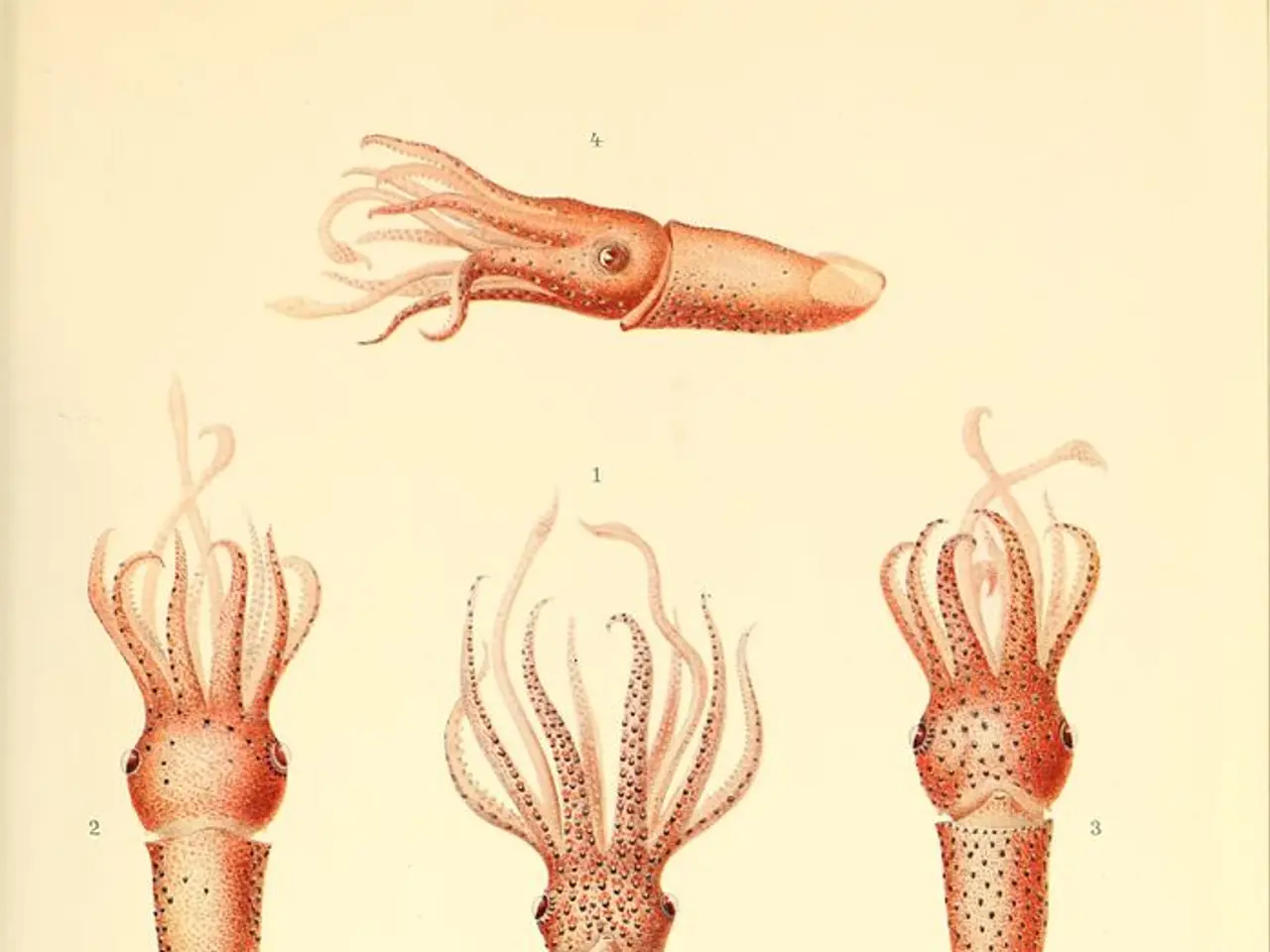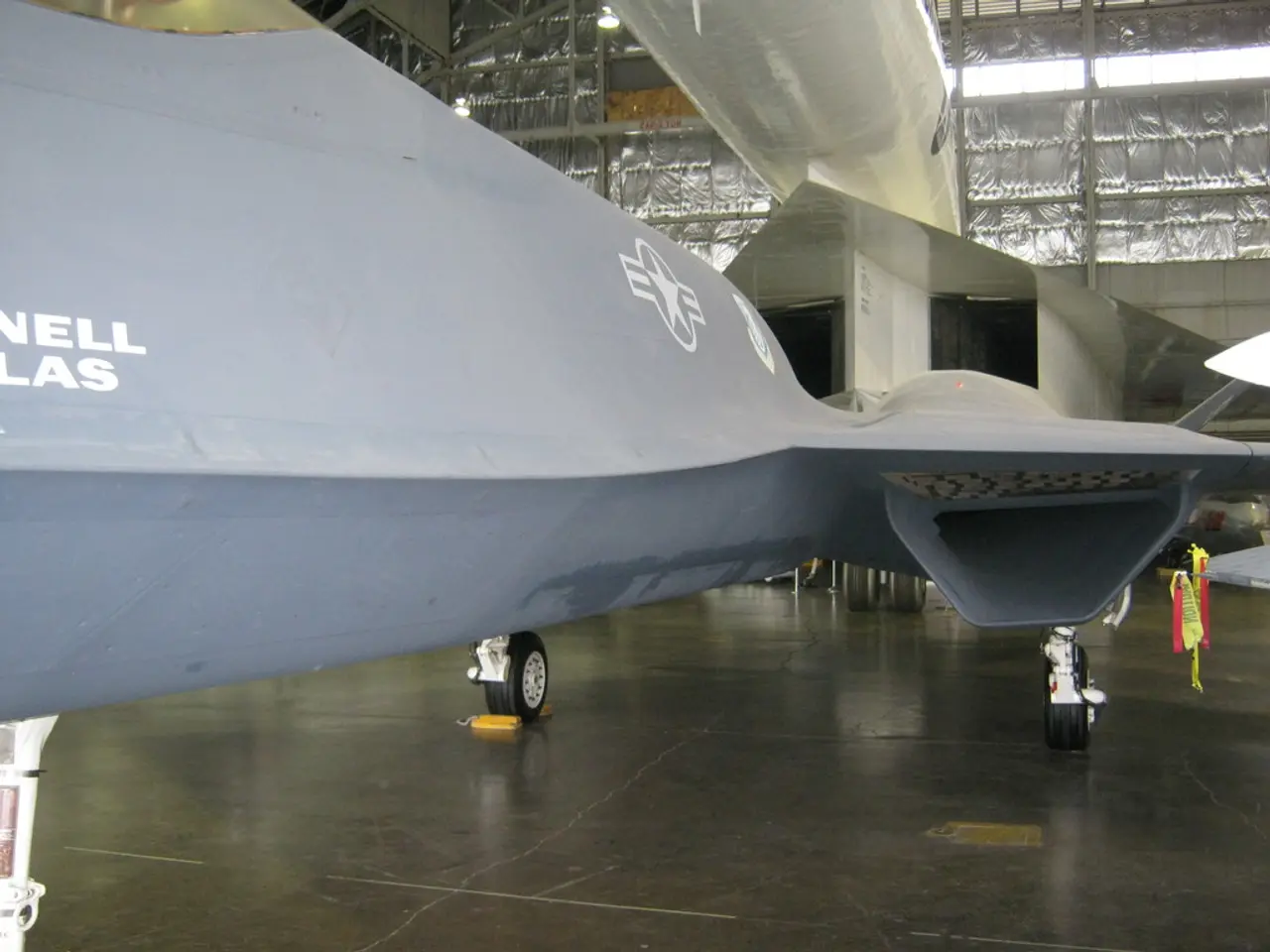Researchers at Harvard Develop Robotic Arm Modeled after Octopus's Tentacles
### Soft Robotic Arm Inspired by Octopus Tentacles: A Game-Changer in Manipulation
In a groundbreaking development, scientists at Harvard's Wyss Institute, in collaboration with researchers from Beihang University, have unveiled a soft robotic arm designed to mimic the dexterity and adaptability of octopus tentacles. This innovative design promises to revolutionise the way robots handle objects in unstructured environments.
The robotic arm, whose performance can be observed in a gif available at Harvard's Wyss Institute, boasts a unique conical geometry inspired by the variability in arm taper angle between different octopus species. This design allows the robotic arm to grip a wide range of morphologically diverse objects.
The arm's performance is facilitated by two control mechanisms: a pressure valve and a vacuum system with suction cups. The pressure valve is used to apply pressure for bending, while the vacuum system works in conjunction with the suction cups to enhance the arm's gripping capabilities.
The development of this soft robotic arm is an exciting leap forward, offering potential applications in various fields such as search and rescue, underwater exploration, and healthcare. The arm's ability to precisely target and manipulate objects, coupled with its adaptability, makes it a valuable tool in these domains.
Co-senior author of the study, Katia Bertoldi, states that the research has led to new insights in creating soft robotic actuators for gripping diverse objects. The successful development of this robotic arm contributes to the creation of next-generation soft robotic actuators.
The robotic arm, equipped with octopus-like suction cups, has already demonstrated its versatility by picking up a variety of objects, including eggs, exercise balls, and live crabs. This versatility and precision are a testament to the potential of soft robotics in pushing the boundaries of what robots can achieve in terms of flexibility, adaptability, and precision.
As we continue to draw inspiration from nature, the advancements in soft robotics are set to transform the way we interact with our environment, opening up a world of possibilities for the future.
Due to its unique design inspired by octopus tentacles and driven by artificial intelligence, this soft robotic arm could potentially revolutionize the fields of science and technology. Its versatility in gripping diverse objects, and precision, make it a valuable tool for underwater exploration, search and rescue missions, and healthcare, ultimately propelling the development of next-generation soft robotics.
Artificial intelligence's role in enabling such innovations highlights the increasing intersection between science, technology, and artificial intelligence, paving the way for a future where soft robotic solutions perform tasks more adaptively and efficiently than ever before.




